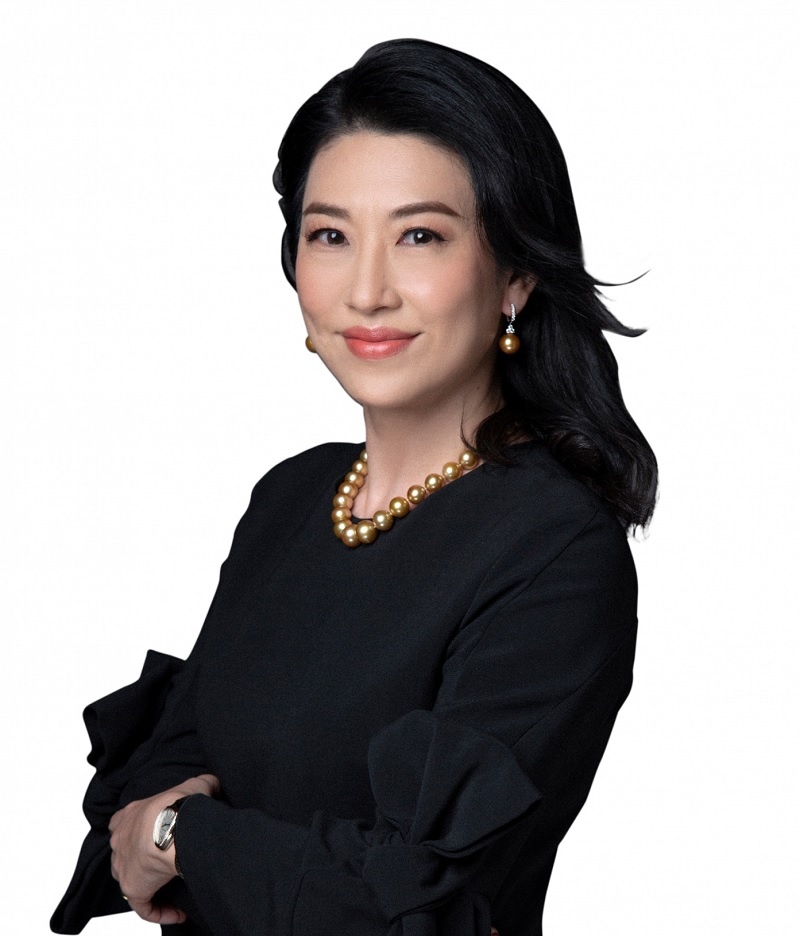Gender equality deemed essential towards building sustainable society
 |
| Michele Wee, CEO of Standard Chartered Bank Vietnam |
How do you see the role of women in Vietnam’s socioeconomic development?
There is little doubt that women play a critical role in enabling Vietnam’s impressive socioeconomic development over the past few years. From my observation, Vietnamese women are very multi-tasking oriented. They can take on several roles, including taking care of their families and doing business.
The education standards in Vietnam are relatively high and importantly access to education is equal to both men and women. Also, there is a high ratio of women participating in the labour force and doing business.
Equipping women with education and equal opportunities will help them learn, earn, and grow. This will translate into socioeconomic benefits for the country’s sustainable development.
What do you think can help to drive change in gender equality?
We believe that to accelerate change, gender needs to stop being treated as only a woman’s issue. For organisations to be truly inclusive and minimise disparities, they need to engage all genders and enable women and men to make the necessary behavioural changes.
Gender equality provides men and women multiple benefits, including the freedom to share financial responsibilities with one’s spouse or partner; more rewarding and intimate relationships with the spouse or partner; the freedom to parent more substantively, more rewarding relationships with children; the freedom to define oneself according to one’s own values rather than traditional gender norms; and better psychological and physical health.
Companies must enlist both women and men to work together as allies in changing the organisational norms and structures that perpetuate gender gaps. Focusing exclusively on women, rather than engaging men, risks the unintended consequence of alienating men and jeopardising the success of their gender initiatives.
How do you promote gender equality inside and outside your organisation?
As a leader of an organisation, I see my responsibility in creating a working environment that embraces diversity and inclusion, where everyone feels valued and respected for what they bring to the company, regardless of their age, gender, nationality and ethnicity. This is the commitment of SCBVL from the group level, and every leader also needs to make a personal commitment to that.
Within the organisation, we have multiple initiatives to promote gender equity, such as coaching and mentorship programmes, a global learning week, an employee assistance programme, and hybrid working models, among others.
We have been actively catalysing change in the community. Running from 2014, our GOAL project in Vietnam has equipped thousands of adolescent girls with life skills through sports activities.
Recently, I represented SCBVL to sign the Panel Pledge, which aims to have women representation in all panel discussions. We also signed an MoU with the VinaCapital Foundation on the implementation of two Brighter Path Girls’ Clubs for rural ethnic minority female students in Vietnam.
This is a further extension of a multi-year partnership between SBCVL and the VinaCapital Foundation, which started in 2021. Running from May 2022 to May 2023, the clubs will provide the girls with education in financial literacy, sexual and reproductive health, legal rights, and leadership skills, helping to empower and transform them into agents of change in their communities.
We also promote gender equality within our supply chain, which incorporates businesses owned by diverse individuals or groups – for instance, women, minorities, and micro and small businesses – and non-diverse corporations with strong diversity and inclusion profiles aligning with our principles.
What the stars mean:
★ Poor ★ ★ Promising ★★★ Good ★★★★ Very good ★★★★★ Exceptional
Themes: Empowering Women
- Female influence still to be attained
- Shaping Vietnam's corporate future: female board members show business excellence
- Nestlé Vietnam contributes to elevating the role of women across the supply chain
- Empowering female leaders in tech: insights and aspirations shared at KPMG Tech Innovator 2023
- Brighter Path programme hosts empowerment meeting for ethnic minority girls
Related Contents
Latest News
More News
- Digital shift reshaping Vietnam’s real estate brokerages (December 31, 2025 | 18:54)
- Allen & Gledhill recognised as Outstanding M&A Advisory Firm (December 18, 2025 | 14:19)
- Inside Lego Manufacturing Vietnam (December 18, 2025 | 11:45)
- The next leap in Cloud AI (December 11, 2025 | 18:19)
- Vietnam’s telecom industry: the next stage of growth (December 11, 2025 | 18:18)
- Five tech predictions for 2026 and beyond: new era of AI (December 11, 2025 | 18:16)
- CONINCO announces new chairman and CEO (December 10, 2025 | 11:00)
- How AWS is powering the next-gen data era (December 09, 2025 | 13:14)
- Outlook in M&A solid for Singapore (December 08, 2025 | 10:31)
- Vietnamese firms are resetting their strategy for global markets (December 05, 2025 | 17:04)

 Tag:
Tag:


























 Mobile Version
Mobile Version